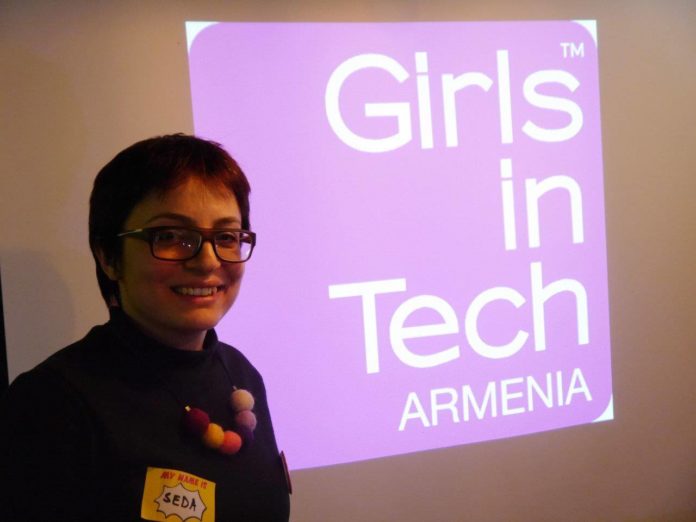YEREVAN — Armenia has precious few natural resources to secure its future; it has no oil, gold or diamonds. Instead, it does have a young, educated population and that just might be enough to promise it a golden future.
Seda Papoyan is one of the people who would like to harvest that natural intelligence for the future of the country, by getting more and more young people in high-tech. And for Papoyan, it is important that young girls get into coding, the language of high tech, from the start.
To meet that goal, she and a group of supporters are trying to crowdfund a new chapter of CoderDojo so that children, and girls especially, will learn coding.
Papoyan is the managing director of the Armenia chapter of Girls in Tech, which was founded in 2016.
Girls in Tech is another global organization that was founded 11 years ago in San Francisco, to “engage, empower and educate” women in tech, a field where women are in a distinct minority around the world.
The Armenia chapter was founded two years ago with the aim of teaching coding to young girls, who in turn can become women in tech. It has about 100 members, with a staff of seven.












